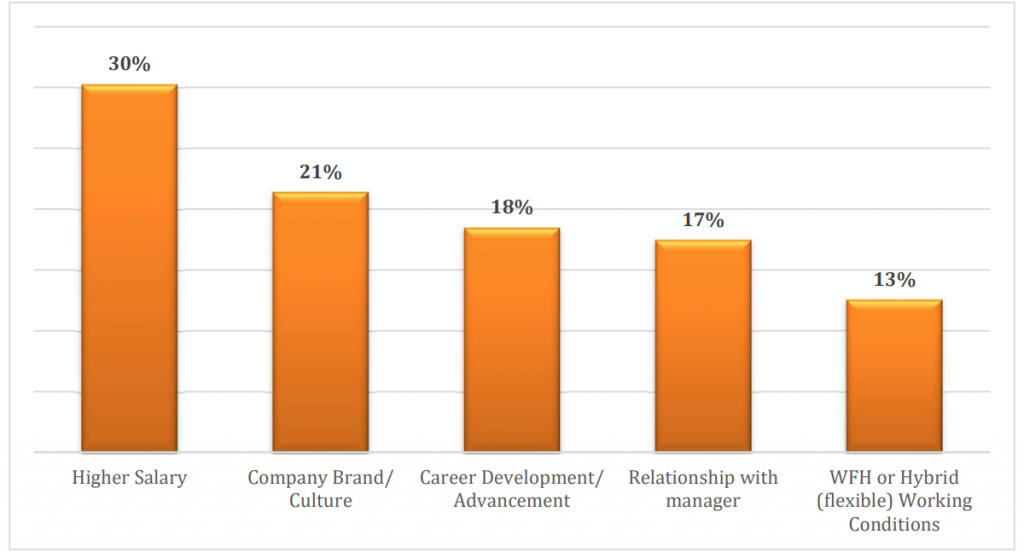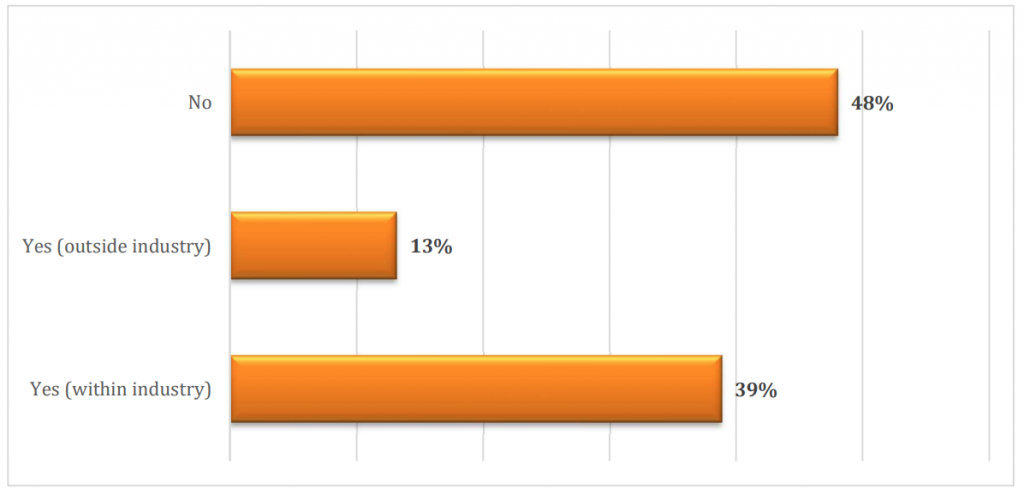Travel and hospitality human resource (HR) specialist ACI HR Solutions’ annual study on recruitment demands and hiring challenges has unveiled that remuneration is still the strongest driving force for job loyalty while work-from-home (WFH) arrangements are the least crucial.
For the 12th edition of the ACI Report, released on January 31, 2024, 30 per cent of respondents ranked higher salary as their number one motivation for changing employment or staying with their present employer while 21 per cent listed company brand/ culture. Only 13 per cent cited WFH/flexible arrangements as their top draw.
In fact, 42 per cent of respondents indicated WFH as the lowest priority.

In terms of salary satisfaction, the report found that 68 per cent of respondents received some form of increment in 2023 – up from previous year’s 55 per cent and surpassing pre-pandemic levels where 65 per cent of respondents indicated a bump in their pay.
Andrew Chan, founder & CEO of ACI HR Solutions, pointed out that respondents in the higher age groups – from 46 years and above – experienced the largest increment. “This could indicate that they were more affected during the pandemic and took a lower salary to re-enter or stay in employment. Now that the industry has mostly rebounded, their salary has finally equalised to their experience,” he reasoned.
Furthermore, 62 per cent of respondents enjoyed a bonus in 2023; in 2022 only 47 per cent received a bonus. The majority (39 per cent) of these respondents were given one to two month’s bonuses.
In determining salary trends, researchers noted that average salaries across the region had mostly trended down or stayed flat in 2023. This was likely due to salaries stabilising after spiking in 2022 when businesses were under pressure to rebuild their workforce as travel returned.
The UAE, Saudi Arabia and Qatar once again recorded the highest average salaries (US$139,664), while Malaysia sat at the other end of the spectrum, with an average salary of US$32,164 – a 42 per cent decline from the previous survey.
Average salaries in Singapore recorded a 10.7 per cent jump on 2023 to US$106,714.

In tracking staff movement for the coming 12 months in 2024, 48 per cent of respondents indicated no intention of leaving their current employer and/or the industry; 39 per cent were open to other jobs in the industry while 13 per cent expected to exit the industry.
As the industry continues to recover from the effects of the pandemic, negative job impacts have reduced – 11 per cent of respondents indicated that they were impacted, down from 18 per cent in 2022; three per cent had their roles made redundant in 2023, compared to nine per cent in 2022.
The report also noted that all retrenched staff have since found new employment.
Hiring sentiments are strong, with 41 per cent of HR and hiring managers expecting new headcounts in 2024. This is, however, a slip from 58 per cent seen in the 2023 ACI Report. Looking ahead, HR and hiring managers are worried about finding the right talents, the lack of applicants, and high salary expectations that budgets cannot meet.
Reflecting on the 2024 ACI Report findings, Chan told TTG Asia: “Given the ubiquitous headlines around WFH, I was surprised to see that only 14 per cent of respondents had listed that as a priority when considering employment, and salary has returned as the prime motivator.”
He suggested that the rising cost of living might have pushed employees to pay greater attention to their earnings.
However, considering how travel and tourism growth rate in 2024 would likely slow down against what was seen in 2023 while costs continue to rise, putting pressure on profitability, Chan warned that salary growth would likely plateau in 2024.
When asked how could resource-strapped employers retain salary-focused staff in 2024, Chan advised a focus on culture as a retention tool.
“I believe that amid the industry’s rapid rebound and the rise of hybrid work conditions, company culture may have diminished or loosened. 2024 is the time for HR to refocus and strengthen this aspect of the business,” he said.
The report surveyed 753 travel, tourism, hospitality, and lifestyle personnel across Asia-Pacific and the surrounding regions.




















